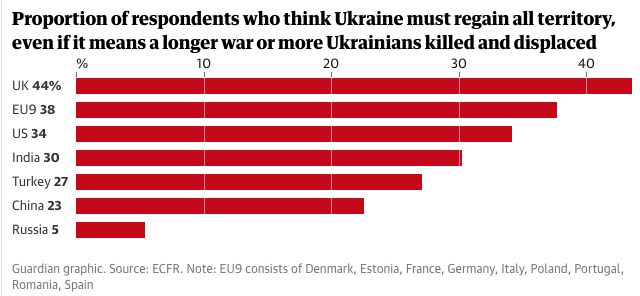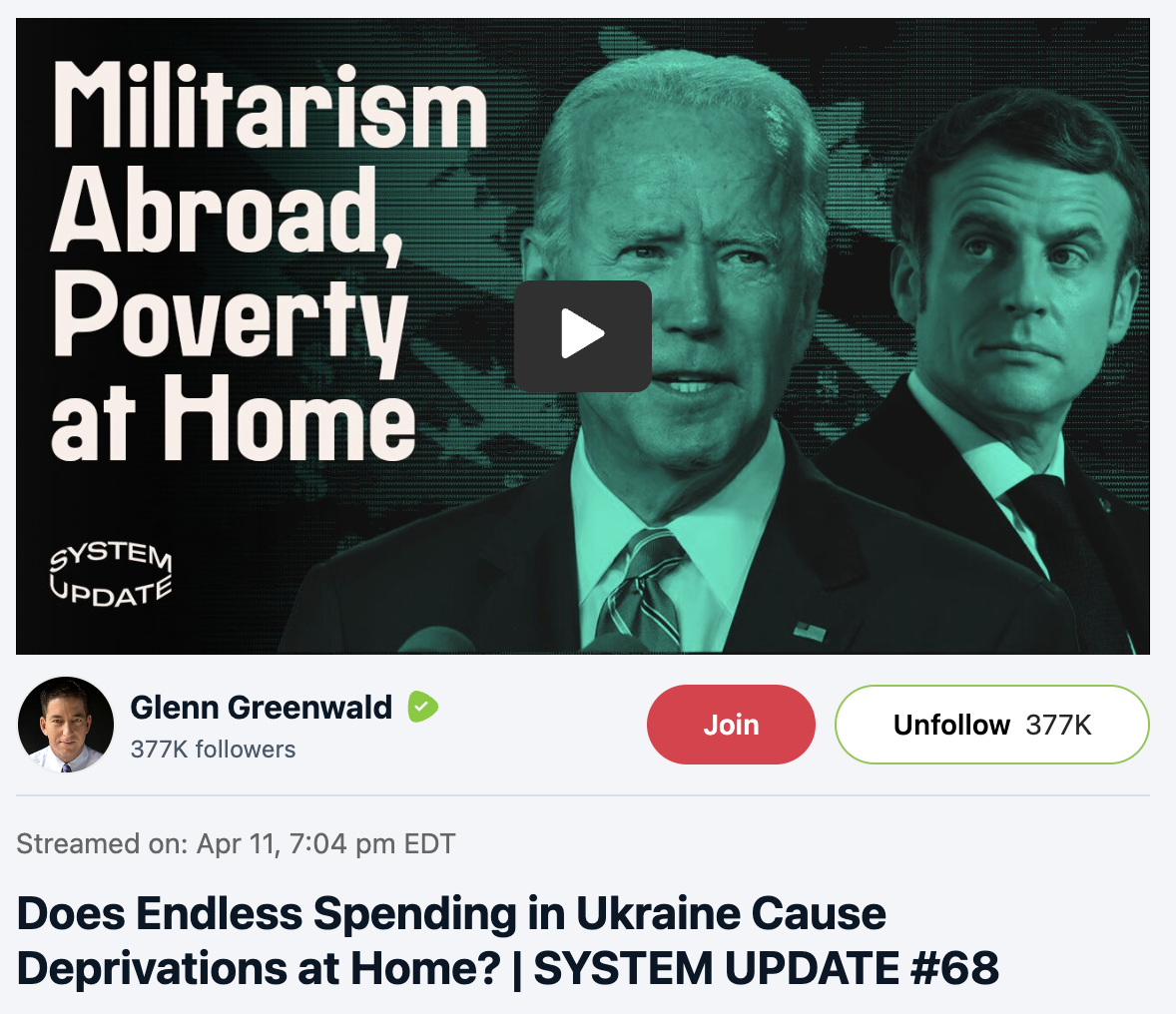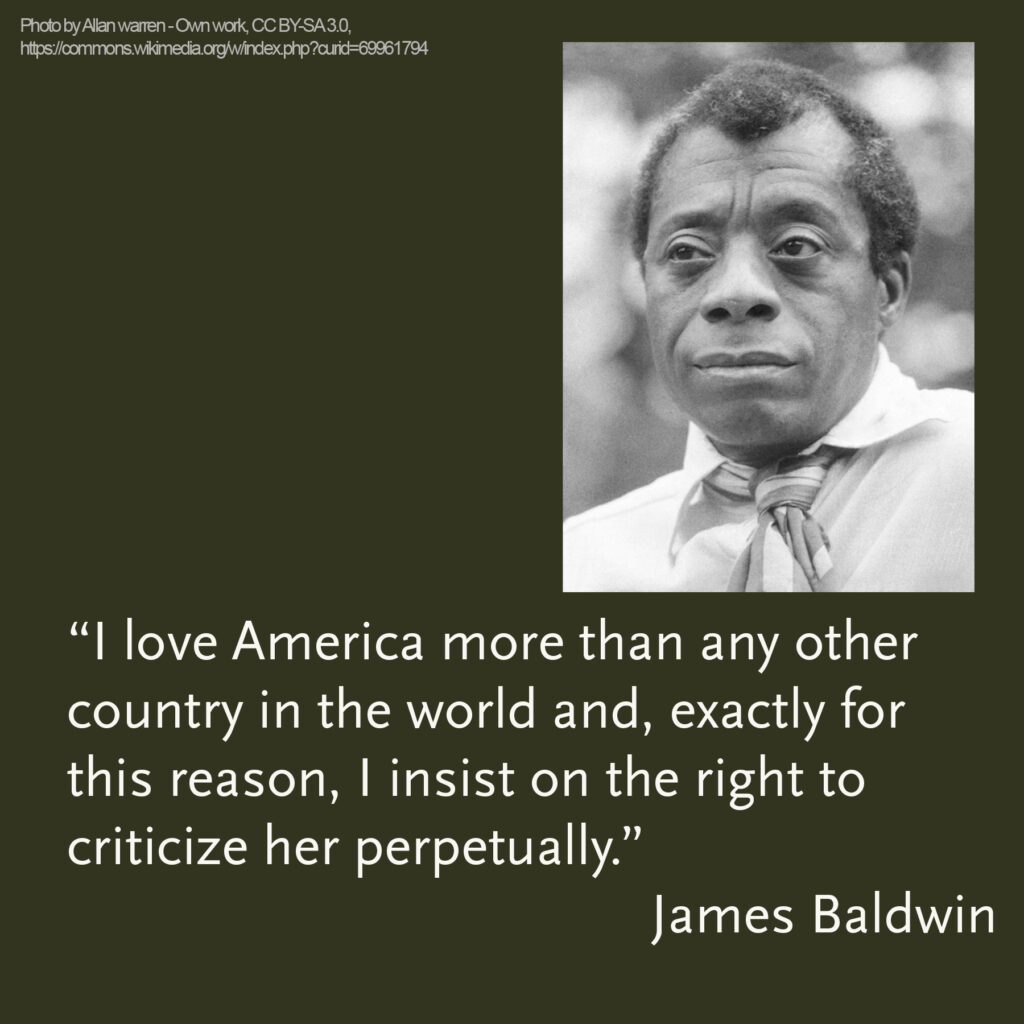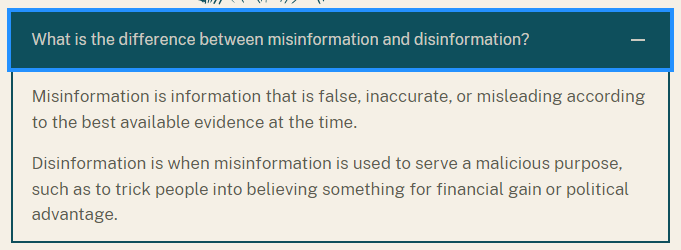At the Washington Post, Marc Thiessen recently authored "This is the ‘America First’ case for supporting Ukraine." I strenuously disagree with his "facts" and reasoning throughout, but his final five "reasons" are especially bizarre. None of these five reasons justifies U.S. involvement in the Ukraine war. Most glaringly, none of these reasons consider a meaningful cost-benefit analysis from the perspective of ordinary Americans. Further, his "reasons" lead to the bizarre conclusion that the U.S. should instigate and prolong numerous unjust wars that fail to serve the interests of ordinary Americans, a major issue conspicuously ignored by Thiessen. Here are his "reasons" (6-10) for continuing with our warmongering 6-10:
6. "A proving ground for new weapons."
This is a valid reason for indiscriminately going to war! Yes, indeed.
7. "Arming Ukraine is revitalizing our defense industrial base."
Yes, we need to make sure that weapons manufacturers can afford to pay big salaries to management and to their lobbyists.
8. "The Russian invasion has strengthened U.S. alliances."
Not true if you poll people outside of the readership of U.S. corporate media. And if only there were other better ways to strengthen U.S. alliances other than killing people and blowing up their cities . . .
Further, consider attitudes of people outside of Western countries:
Almost a year after Russia’s war against Ukraine started, it has united the west, according to a 15-country survey – but exposed a widening gulf with the rest of the world that is defining the contours of a future global order.
The study, by the European Council on Foreign Relations (ECFR) thinktank, surveyed opinions in nine EU member states, including France, Germany and Poland, and in Britain and the US, as well as China, Russia, India and Turkey.
It revealed sharp geographical differences in attitudes to the war, democracy and the global balance of power, the authors said, suggesting Russia’s aggression may be a historic turning point marking the emergence of a “post-western” world order.
“The paradox of the Ukraine war is that the west is both more united, and less influential in the world, than ever before,” said Mark Leonard, the thinktank’s director and a co-author of the report, based on polling carried out last month.
Timothy Garton Ash, a professor of European studies at Oxford University, who also worked on the study, called the findings “extremely sobering”.
Consider this graph, which strongly clashes with the prevailing narrative of U.S. elites:

9. "Victory helps prevent nuclear proliferation."
Do you know what else would prevent future nuclear proliferation? Starting a nuclear war. As Joe Biden admitted on October 6, 2022:
In remarks at a reception for the Democratic Senatorial Campaign Committee, Biden said it was the first time since the 1962 Cuban Missile Crisis that there has been a "direct threat" of nuclear weapons’ being used, "if, in fact, things continue down the path they are going.”
“We have not faced the prospect of Armageddon since Kennedy and the Cuban Missile Crisis,” he said, offering his bluntest comments about the use of nuclear weapons since Russia invaded Ukraine in February.
Biden admitted that he engaged in this stunningly reckless behavior months before recent days, when decided to send Abrams tanks and F16's to Ukraine. What could possibly go wrong with this?
10. "Victory in Ukraine is achievable."
Didn't we hear this same claim, year after year, in Vietnam, Iraq, Afghanistan and Libya? Thiessen presents no factual basis for believing that this specious claim is any more true in the case of Ukraine.
It seems that Thiessen's article was penned by a lobbyist for the military-industrial complex, but it seems like Thiessen would not be the kind of person who would be so incredibly unreflective. For instance, Thiessen wrote candidly about the Durham Report--the headline is "The Durham report is a damning indictment of the FBI — and the media." I would now suggest that he soul-search Hillary Clinton campaign's lies about Russian collusion with Trump, something she did to enhance her personal political ambitions. What is the connection to Ukraine? I suggest this. There is a hatred of Russia simmering under the lack of a meaningful national discussion regarding the Ukraine War. That poisoning, I suspect, motivates unreflective articles of the sort Thiessen has just written about the Ukraine war.
For more on the many ways that the Ukraine War fails to serve the interests of ordinary Americans, see this episode of Glenn Greenwald's System Update: Does Endless Spending in Ukraine Cause Deprivations at Home?





